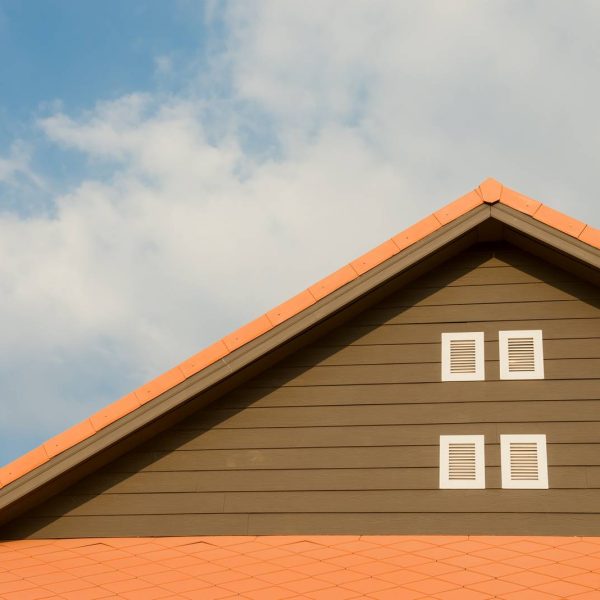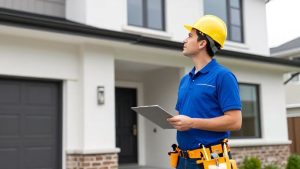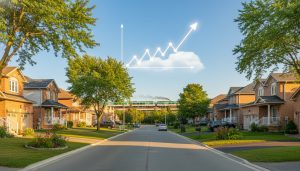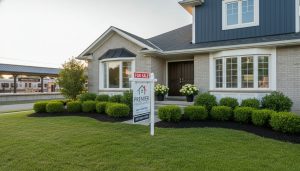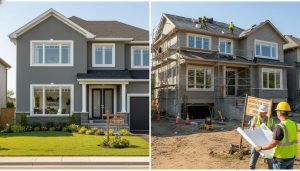Georgetown, ON is a small town, famous for its authentic charm, friendly population, and proximity to stunning natural landscapes. But as more and more people flock to Georgetown, the real estate market is booming, and homebuyers need to keep an eye out for essential details when looking to purchase a home.
One critical aspect to consider is the age of the home. Homes that are older may possess a certain charm or aesthetic appeal, but there are several drawbacks potential buyers should consider when eyeing older homes. In this article, we’ll explore why the age of the home matters in 2023, especially in Georgetown.
Inspection Challenges
When you are buying a used product, it is only logical to verify its condition and assess any potential wear and tear. Buying an older home poses challenges because inspections can be more difficult, and serious issues may be missed or dismissed. Older homes often have more wear and tear, which may not show up in the visual inspection alone. Structural issues, foundation concerns, and wiring problems are just a few examples of technical defects that may not be immediately visible and can quickly devalue a home.
A qualified home inspector will identify these issues but, with older homes, their job can be much harder than for newer homes. Moreover, some issues associated with older homes may require expensive repairs, which can be an unpleasant surprise for new homeowners when they move in.
Energy Efficiency
Energy efficiency is a crucial consideration that should never be overlooked. It is well-known that older homes may not have efficient insulation, modern windows, or updated HVAC systems, leading to higher energy costs. This is because older homes were not built with energy efficiency in mind, and homeowners often have to invest in expensive upgrades to improve the energy efficiency of these homes.
This is particularly crucial with winters in Georgetown, ON where temperatures can drop significantly, and homeowners need to keep their homes well-insulated to stay warm without causing their energy bills to skyrocket.
Maintenance Costs
As a homeowner, you will have to upkeep your house over time, even more so for older homes. Older homes are more likely to require repairs due to aging or wear and tear, which can lead to higher maintenance costs for the homeowner. While maintenance costs will vary depending on the house and its features, older homes tend to need more upkeep and tend to come with higher maintenance costs than newer homes.
Property Value
Another consideration for homebuyers is how the age of the home affects property value potential. Older homes have a lower resale value than brand new houses. This is because older homes may have more wear and tear, as well as fewer modern amenities or energy efficiency upgrades. As such, buyers of older homes may be less likely to earn a significant return on their investment if they ever decide to sell.
Moreover, buyers need to consider their personal risk tolerance as older homes may not appreciate as quickly as newer homes or could be more prone to market fluctuations.
Personal Preference
While downsides do come with old age, there are homeowners who fancy the aesthetic of older homes, such as ornate finishes or hand-carved banisters. Aesthetic appeal alone may make up for higher maintenance costs and lower property value in the eyes of some homebuyers. It comes down to personal preference in the end.
Conclusion
When purchasing a home in Georgetown, ON, it is crucial that buyers factor in the age of the home they are investing in. While older homes inherit some unique features, they also come with various downsides that younger homes lack, including higher maintenance costs and higher utility bills. As a real estate team, Tony Sousa and The SousaSells.ca Team suggests considering other factors like location, amenities, and square footage, to make informed decisions when making home purchases.
FAQs:
Should I buy an older home?
If you prioritize historical charm, unique character, or aesthetics over resale potential, an older home may be the right choice for you. However, if you prioritise modern amenities and energy-efficient appliances or aim to resell your home, a newer home may be the better option.
What are some potential hidden costs of purchasing an older home?
Common hidden costs of older homes include higher utility bills, expensive repairs, and maintenance expenses. Fixing foundation problems or rewiring older homes can be especially costly.
What should I consider when inspecting an older home?
As a potential homebuyer, consider looking for potential problems related to foundation, electrical systems, and roofing. Old homes are likely to have hidden cracks in the foundation, high moisture levels, and old electrical systems that require rewiring.
Can energy efficiency be improved in an older home?
Older homes can be retrofitted to become more energy-efficient. Installing insulation or updating dated HVAC systems can significantly cut down on energy costs. However, these upgrades can be costly, so it is essential to keep them in mind if you plan to purchase an older home.
How does the resale value of older homes compare to newer homes?
Older homes tend to appreciate at lower rates than newer homes. Homes that are 20-30 years old can lose up to 20% of their initial value due to depreciation, while newer homes retain more of their original value over time.

